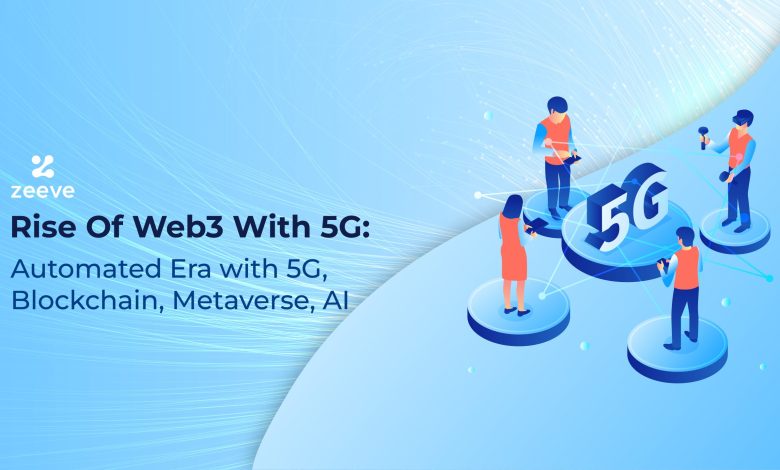The Impact of 5G Technology on Blockchain and Cryptocurrencies

- The convergence of 5G and blockchain technology
- Enhancing security and scalability in cryptocurrencies with 5G
- The role of 5G in revolutionizing blockchain applications
- Exploring the potential of 5G for faster cryptocurrency transactions
- Challenges and opportunities of integrating 5G with blockchain
- The future of decentralized finance with 5G technology
The convergence of 5G and blockchain technology
5G technology and blockchain are two cutting-edge technologies that are revolutionizing the way we communicate and transact. The convergence of these two technologies has the potential to create a powerful synergy that can drive innovation and transform various industries.
5G technology offers ultra-fast internet speeds, low latency, and high reliability, making it ideal for supporting blockchain networks. The high-speed connectivity provided by 5G networks can enhance the performance of blockchain applications, enabling faster transaction speeds and improved scalability.
Blockchain technology, on the other hand, provides a secure and transparent platform for conducting transactions and storing data. By combining the security and transparency of blockchain with the speed and reliability of 5G networks, businesses can create new opportunities for secure and efficient transactions.
One of the key benefits of the convergence of 5G and blockchain technology is the potential to enable new use cases and applications. For example, the combination of 5G and blockchain can facilitate secure and real-time transactions in industries such as finance, healthcare, supply chain, and IoT.
Overall, the convergence of 5G and blockchain technology has the potential to revolutionize the way we transact and communicate, opening up new possibilities for innovation and growth in various industries.
Enhancing security and scalability in cryptocurrencies with 5G
5G technology is set to revolutionize the world of blockchain and cryptocurrencies by enhancing security and scalability. With its ultra-fast speeds and low latency, 5G networks provide a more secure environment for conducting transactions and storing sensitive data. This increased security will help to mitigate the risk of cyber attacks and fraud in the cryptocurrency space.
Furthermore, the scalability of cryptocurrencies will be greatly improved with the implementation of 5G technology. The increased bandwidth and capacity of 5G networks will allow for more transactions to be processed simultaneously, leading to faster confirmation times and lower fees. This will make cryptocurrencies more practical for everyday use and help to drive mainstream adoption.
In addition, 5G technology will enable new use cases for blockchain and cryptocurrencies, such as Internet of Things (IoT) devices that can securely interact with each other using blockchain technology. This will open up a whole new world of possibilities for decentralized applications and smart contracts, further expanding the utility of cryptocurrencies.
The role of 5G in revolutionizing blockchain applications
5G technology is set to revolutionize blockchain applications by providing faster and more reliable connectivity. This next-generation network will enable blockchain platforms to process transactions more efficiently, leading to increased scalability and improved performance. With 5G, blockchain applications can handle a higher volume of transactions in real-time, making them more suitable for use cases such as supply chain management, digital identity verification, and decentralized finance.
One of the key benefits of 5G technology for blockchain applications is lower latency, which refers to the time it takes for data to travel between devices. With 5G, transactions on blockchain networks can be confirmed more quickly, reducing the risk of double-spending and improving overall security. Additionally, the increased bandwidth of 5G networks allows for larger data transfers, enabling blockchain platforms to store more information securely and efficiently.
Furthermore, the widespread adoption of 5G technology will make blockchain applications more accessible to a global audience. With faster internet speeds and improved network coverage, users from around the world can participate in blockchain networks without experiencing delays or connectivity issues. This increased accessibility will drive the mainstream adoption of blockchain technology and cryptocurrencies, leading to a more decentralized and inclusive financial ecosystem.
Exploring the potential of 5G for faster cryptocurrency transactions
5G technology has the potential to revolutionize the world of cryptocurrency transactions by enabling faster and more efficient processing. With its increased bandwidth and lower latency, 5G networks can significantly improve the speed at which blockchain transactions are verified and added to the ledger. This means that users can enjoy quicker confirmation times and reduced waiting periods when sending or receiving cryptocurrencies.
Challenges and opportunities of integrating 5G with blockchain
Integrating 5G technology with blockchain presents both challenges and opportunities for the future of cryptocurrencies. The high-speed, low-latency capabilities of 5G networks can significantly enhance the performance and scalability of blockchain networks. However, there are also several obstacles that need to be overcome to fully realize the potential synergy between these two technologies.
One of the main challenges of integrating 5G with blockchain is the security and privacy concerns that arise from the increased connectivity and data transfer speeds. As more devices are connected to the network, the risk of cyber attacks and data breaches also increases. Blockchain technology can help address these security issues by providing a decentralized and immutable ledger for storing sensitive information.
Another challenge is the interoperability between 5G networks and blockchain platforms. Different blockchain networks may have varying protocols and standards, making it difficult to seamlessly integrate them with 5G infrastructure. Standardization efforts are underway to address this issue and ensure compatibility between the two technologies.
Despite these challenges, the integration of 5G with blockchain also presents numerous opportunities for innovation and growth in the cryptocurrency space. The increased speed and efficiency of 5G networks can enable faster transaction processing and lower fees for cryptocurrency transactions. This can help drive mainstream adoption of cryptocurrencies and blockchain technology.
Furthermore, the combination of 5G and blockchain can enable new use cases and applications, such as decentralized finance (DeFi) platforms, Internet of Things (IoT) devices, and smart contracts. These innovations have the potential to revolutionize various industries and create new opportunities for businesses and consumers alike.
The future of decentralized finance with 5G technology
The integration of 5G technology into decentralized finance (DeFi) is set to revolutionize the way blockchain and cryptocurrencies operate. With the lightning-fast speeds and low latency offered by 5G networks, DeFi platforms will be able to process transactions more efficiently and securely than ever before.
One of the key benefits of 5G technology for DeFi is the ability to support a larger number of users simultaneously. This means that DeFi platforms can scale up their operations to accommodate more transactions, leading to increased liquidity and improved user experience.
Furthermore, the high bandwidth and reliability of 5G networks will enable DeFi platforms to offer more complex financial products and services, such as decentralized lending and borrowing, without compromising on security or performance.
Overall, the future of decentralized finance with 5G technology looks promising, with the potential to unlock new opportunities for innovation and growth in the blockchain and cryptocurrency space.



